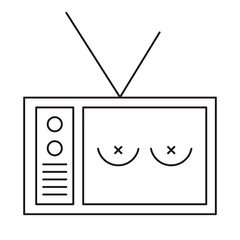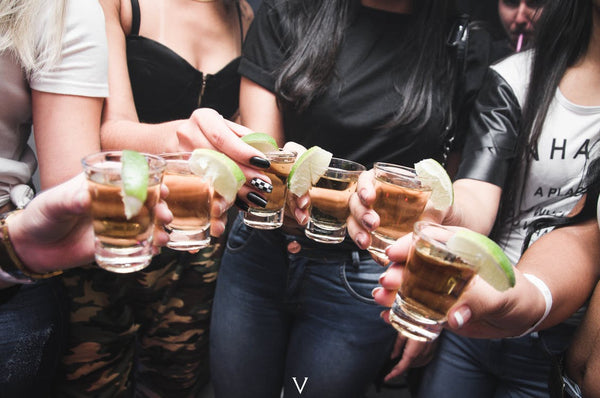
So I thought that the after the recent decision at Tumblr we’d have a holiday devoid of interesting internet news for a while. Everyone would peace out for the holidays so I could heat up some hot cocoa, put on some slippers, and chill out by the fireplace.
But global social media platforms tend to flock together like sheep. Last week (around the same time as Tumblr), news came out that Facebook decided to ban speech related to sexual slang. Facebook made this decision “with input from third-party organizations that specialize in women's and children's safety issues” that Facebook declined to name—an interesting distinction considering they said in the same breath that they would be more transparent and “putting out the minutes from our policy development meeting at which these changes are discussed and adopted… so that people can track changes over time” in addition to basically set up their own, supposedly independent, “supreme court-like” group for content and speech appeals. To start, not disclosing who those third-party organizations is fishy as hell. These groups could include more socially conservative groups who have a history of wanting to assert their view of the world on everybody else.
Who those groups are is anyone’s guess right now. I know they likely didn’t consult with any sex educators on any of these decisions that pertained to sexual content or conduct. Why? Because I’m part of a number of groups and discussions of sex educators and therapists that have had touch and go conversations with Facebook, with little success—except for background conversations from employees at varying levels who acknowledge it’s a concern and that there’s nuance—with little action to back their supposed sympathy. But with U.S. government funding the more conservative “protecting mothers and children” groups for literally decades, I’d follow the money… 🤷

GIF by Emma Darvick
Meanwhile, at Steam...
Online gaming content platform Steam/Valve also censored adult content this week — however, their decision was more nuanced. They decided to ban any game that features “themes of child exploitation”. However, they left much of the rest of their adult content on their platform as-is.
In fact, in the last several months, Steam went from having a weird grey area with how they handled adult themes to setting up an entire system to accept games with adult content and regulating its distribution. It accepts many games with adult content, within reason, and it’s careful to get explicit approval from users (after an age verification) to show this content to them with other games on the platform, and it regulates where the content is offered according to country laws and regulations.
Basically, they’re taking a nuanced route, while Facebook (and by extension Instagram), Tumblr, and a number of other global content providers are essentially tone-deaf and banning it writ large.
This isn’t a small decision from a no-name, niche company
To people unfamiliar with the world of gaming, you might be thinking, what is a Steam? And who cares? Or maybe, that’s where my 9-year old is these days... But Steam is a dominant platform for providing games and a gaming community that made $4.3 billion in sales in 2017 (and that’s not even including downloadable content or in-app purchases). Furthermore, even since 2014, the video game industry is more successful than the film and music industry combined. Gaming is not just for the kids, and it’s a whole social platform and fleshed out world in and of itself. There are also a lot of kids andadults alike on the platform, so their audiences and games are certainly not just for kids (same goes for the other big platforms) — they’re also for adults and big kids at heart (myself included in that mix).
Steam could have easily done the same thing that Tumblr did, not just banishing themes of child exploitation, but all adult content in general for everybody. Like Tumblr, they could have also said to leave adult content to the sites on the internet that feature adult content (and there are plenty of large, adult platforms specifically for gaming with adult themes). But they didn’t. In fact, they’re moving in the complete opposite direction. They’re incorporating adult gaming into the broader ecosystem of ALL gaming.
While the rest of the world is going back to the times of the Puritans, Steam is taking a more nuanced, human approach compared to their global platform counterparts. They’re acknowledging that sexual content is a part of all content and that there is a large market of adults who are open to it and enjoy it. It’s welcome in the rest of the world alongside Dota 2, Civilization V, Football Manager 2017, and Disney Princess: My Fairytale Adventure. Because adult gaming is part of the broader gaming world in general, whether it’s something laced with some sexual themes or is a well-developed, amusing game that happens to have porn in it. There are people who want to play it, and for the people who are too young or offended by it, they don’t ever have to see it come across their feeds.
Ironically, this decision to welcome adult content on their platform will enable Steam to have a healthier, safer ecosystem than if it banned it entirely.

This used to be an illegal activity in the United States
The consequences of prohibition
What are the consequences of taking away something, especially from enthusiastically consenting adults? People usually want it more. And where there’s a will, there’s a way.
Prohibiting something doesn’t remove the “problem”. It just hides it better. It spills over to other parts of society, unregulated. And that can become very problematic.
Just look at alcohol prohibition in the 1920s in the United States. Banning alcohol didn’t make it go away. Alcoholic drinks were still available and highly sought after, often smuggled into the U.S. Businesses went underground and off the radar. Adults everywhere risked their freedom and arrest record to drink some beer.
Organized crime also flourished — Al Capone and his leagues of crime-committing men and women became prominent becauseof prohibition. Homebrewing became extremely popular. Malt and hops stores all of a sudden became extraordinarily popular, since everyone loves baking… All this didn’t stop the police and the Ku Klux Klan from trying to enforce prohibition, but it was in a very whack-a-mole way and never made alcohol go away from the people who wanted it. Nor did it make alcohol go away from the people who were offended by its existence.
Alcohol prohibition is not a unique event in the United States. Just look at anytime anything has tried to be banned or censored — looking at the United States, examples include everything from college-age drinking to drugs to FOSTA to pornography to sexual harassment and assault.
It’s the same story over and over. The main thing that’s different here is that this time, it’s not a government that is overseeing this enforcement. It’s a private company and invisible lobbyists and stakeholders in the shadows who are influencing the very things you or I can say on the internet. These private companies can technically do whatever they want, and with their vast reach and influence, they’re overriding our basic tenants of free speech and stepping on everything that we’ve spent centuries building to create a stable, fair society. They’re doing all of this in the name of pleasing advertisers who just don’t feel comfortable with these things and certain lobbyist groups who have their own views on what’s permissible that they’d like to instill on the rest of us. It’s ultimately a losing game for them, but one that they’ll keep trying anyway in the heat of their pearl-clenching.
Our speech is not just spoken word. It’s not just what we say on the phone. If anything, we talk more on the internet than face-to-face these days. We’re more reliant than ever on these privately-run social media platforms for basic speech and communication. The rejection of any sexual content, including sex education, is a direct attack on our government and society. And it’s not solving this perceived problem, either. If anything, it’ll make things worse.
If anything, this decision may spur the rise of our own 21st century Al Capones, and either these big social media platforms will need to stop answering to their global corporate overlords and not give lip service to the people they’re supposedly serving, or another enterprising company will take over the internet, where people are more free to be themselves in a more reasonable, nuanced, and human way. It’s a matter of time. We’re already seeing kids rejecting YouTube and seeing the artificial boundaries for what they are... Just look at this year's YouTube’s crafted “YouTube Rewind” which has the highest dislike-to-like ratio since their first video and excludes many influential creators and cultural references that were embraced by the YouTube community, but attempts to overwrite what's hot in a weak attempt to please their advertisers.
Prohibition doesn’t last forever. It’ll break somehow, someday. It’s a matter of how, and whether companies will acknowledge and manage basic human desire, or try to contain it until it bursts—and takes their users (and their dollars) elsewhere.
===
Thanks for reading! Curious to learn more about my work?
 Lioness is the first and only vibrator that helps you improve your orgasms.
Lioness is the first and only vibrator that helps you improve your orgasms.The world’s most advanced vibrator. Precision sensors let you literally see your arousal and orgasm. Experiment, understand yourself, and have better orgasms — after all, as the saying goes, “never measured, never improved."
Click here to learn more.




